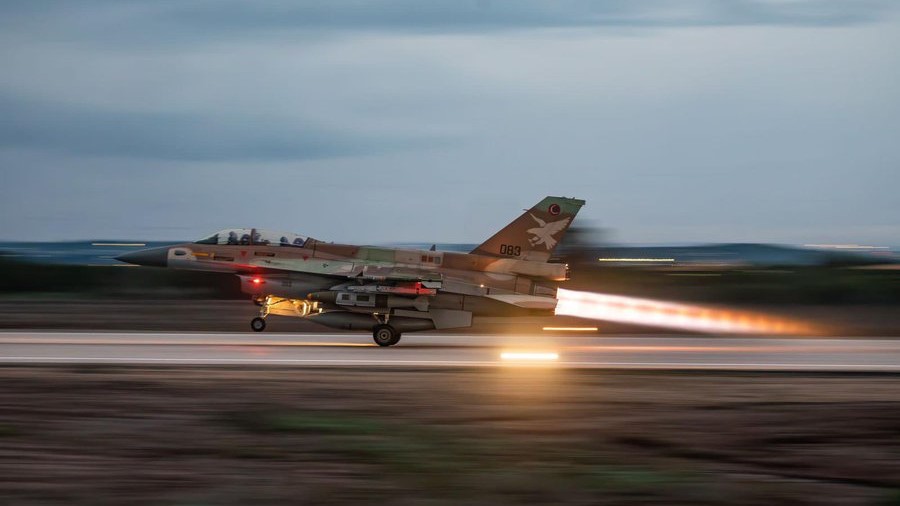The IDF announced on February 14 that it carried a “widespread wave” of airstrikes in Lebanon, targeting Hezbollah sites, including some belonging to the group’s Radwan Force.
The targets include buildings, command centers and other infrastructure belonging to the group in the towns of Jabal al-Braij, Kfar Houneh, Kafr Dunin, Aadchit and Souaneh, according to the IDF.
“Some of the targets belong to the Radwan Force,” the IDF said in a brief statement.
The strikes were carried out in response to a rocket attack from southern Lebanon that targeted the headquarters of the IDF’s Northern Command near the northern Israeli city of Sadaf. A female service member was killed and eight other people were wounded in the attack.
There was no immediate claim for the attack, although it was believed to have been carried out by Hezbollah, which has been launching daily attacks against the IDF from southern Lebanon in response to the Israeli war on the Gaza Strip.
Ali Shoeib, a reporter of the Hezbollah-affiliated Al-Manar TV, said on the X social platform, previously known as Twitter, that a man was killed and nine civilians were wounded in Adchit as a result of Israeli strikes. Three other civilians, a woman and two children, were killed by one of the Israeli strikes that hit Souaneh, according to the reporter.
In addition, Hezbollah announced that one of its fighters was killed “on the road to Jerusalem,” a phrase the group usually uses to refer to those killed in the current confrontation with Israel.
Speaking to mayors and leaders of local authorities in northern Israel after the rocket attack on Safad, IDF Chief of Staff Lieutenant General Herzi Halevi said that there were “a long way to go” in changing the security situation on the border with Lebanon.
“Thanks to you, the IDF can act decisively to change the security situation in the north. There are very great achievements in hitting Hezbollah in Lebanon, but we continue to act. This is not the point to stop. There is still a long way to go and we will walk it together,” he said.
Halevi told the mayors the IDF is increasing its strikes on Hezbollah, and the terror group is paying “increasing prices.” He also warned that should war break out in the north, the IDF will “use all the tools and abilities” it has at its disposal.
So far, the clashes on the border have resulted in six civilian deaths on the Israeli side, as well as the deaths of at least ten IDF soldiers and reservists. On the Lebanese side, more than 300 people have been killed, including 183 fighters of Hezbollah and at least 30 civilians.
Israel’s threats and repeated strikes on southern Lebanon will not likely deter Hezbollah. The group’s senior officials said more than once that the clashes on the border will not end before the Israeli war on Gaza is over.






